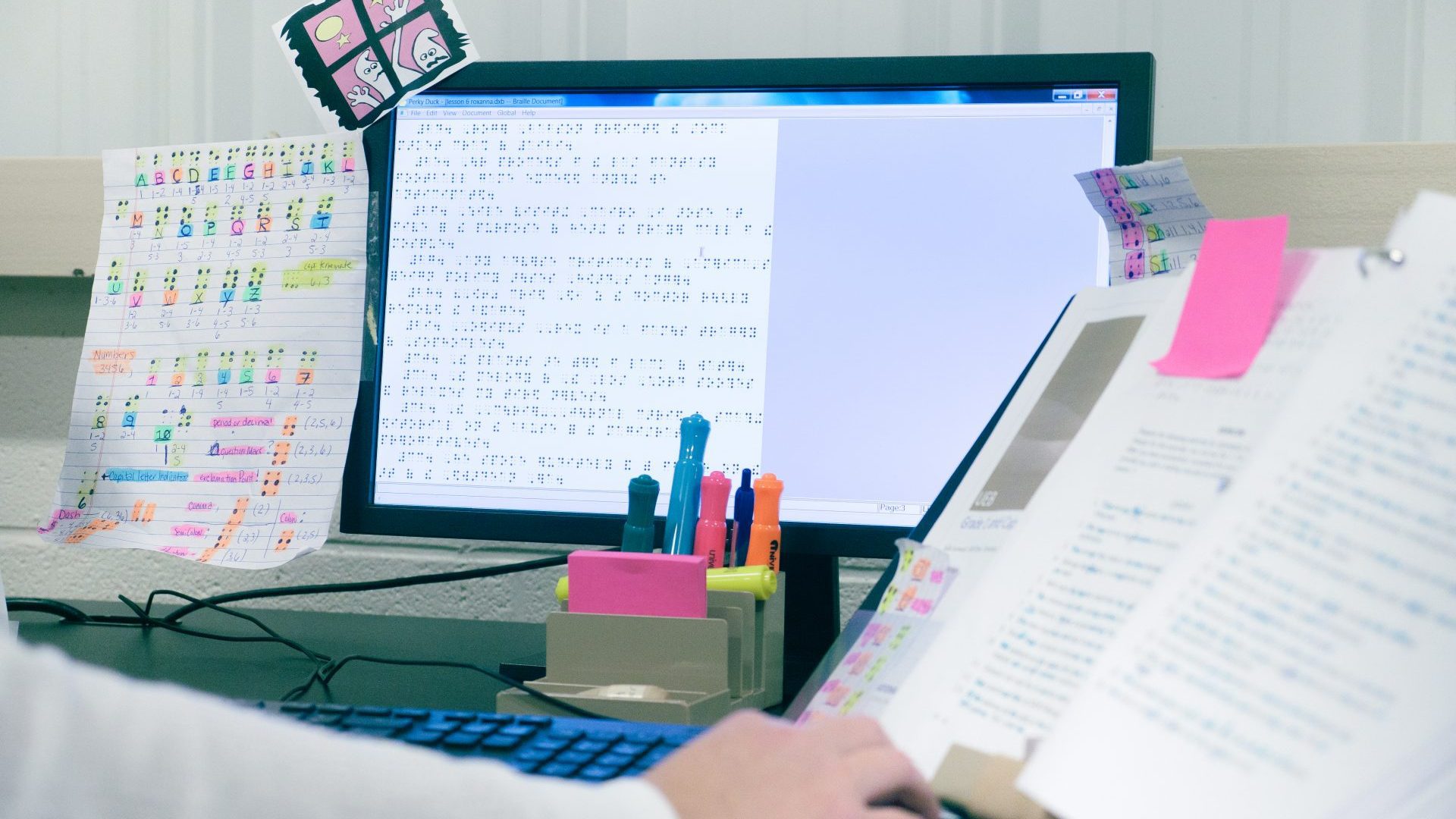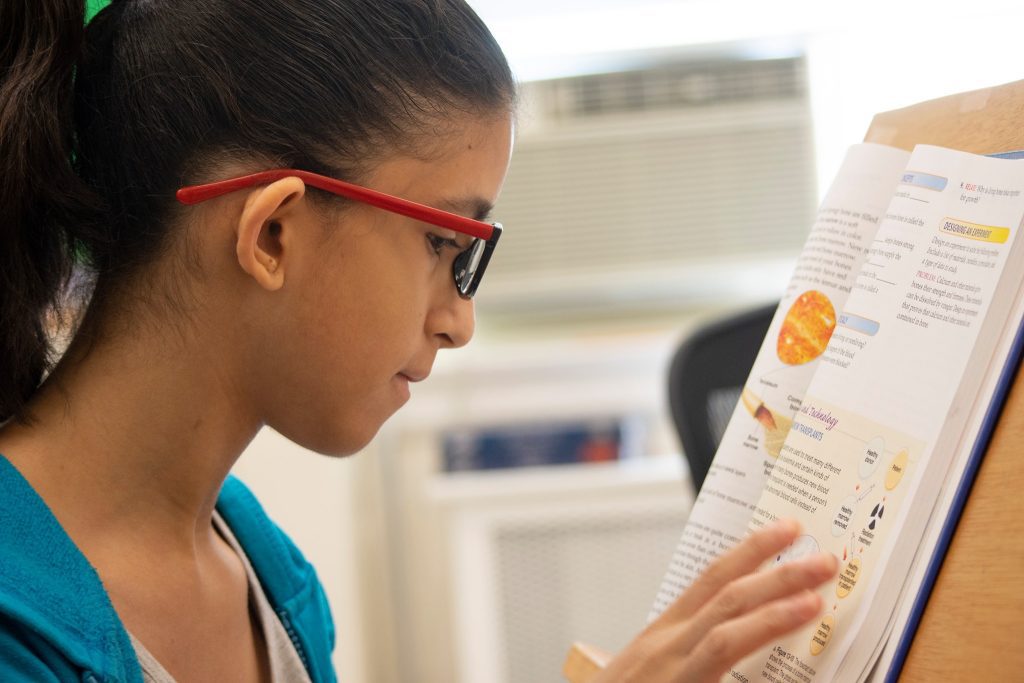Literacy for the Nation: APH’s Braille Transcriber Apprenticeship Program (BTAP) Offers Ex-Offenders a Hand-Up

Imagine what it would be like to be shut off from the outside world for decades, only to find that everything has changed once you’ve been given your freedom. That’s what many of the participants in APH’s Braille Transcriber Apprenticeship Program (BTAP) experience when they are released from prison. We spoke with APH’s Jayma Hawkins, Senior Director of the National Prison Braille Network Program (NPBN), to learn more about how APH and BTAP work together to assist participants as they transition back into society.
Voted to the Executive Board this year, Jayma started BTAP in 2015 after several questions arose about why inmates were learning braille transcription skills when they couldn’t use them upon their release.
Participants in the program must have at least five years left on their sentence before their release date. “We work with a lot of lifers in order to get as many certifications as possible and good tactile graphic experience,” says Jayma. “That lends itself to a long sentence, so they are required to have at least five years before their release date and at least one advanced braille certification other than the literary certification they earn while they are still in prison.” While there is no tactile graphics certification, participants must be adept at tactile graphics. “If the participant can’t do tactile graphics, it greatly reduces the work they can do because every textbook contains tactile graphics,” says Jayma.
‘A’ joined just six months after the program in his prison had opened. “I always try to do my best, and it turns out I had somewhat of a knack for braille,” he says. “I began to love the idea of learning this new language and what it would mean for people who couldn’t read any other way!” In just under two years, ‘A’ earned his literary and formats certifications. Sending his portfolio to BTAP soon after, ‘A’ was accepted into the program.
Working with the re-entry facility about a year prior to their release, Jayma arranges for each participant to have a job when they get out. APH budgets to meet each one in their state, helping them get set up in their new profession by purchasing the equipment they need, including a computer, braille software, tactile graphic software, etc. Jayma ensures they have a safe space where they can work, creating an LLC business which gives them the legal tax guidelines they need.
Just a few weeks after his release, ‘A’ was contacted by Jayma, whom he calls his ‘bonus mom.’ “She came to see me shortly after with a laptop from APH and took me shopping for other materials.”
Jayma also purchases basic items they might not be able to afford yet like socks and T–shirts. She says this can be a very emotional time as some were put in prison as young as 14 and released well into their 40s. “Many of them have never seen cell phones, debit cards, scanned groceries, pay at the pump, cars that talk to you or don’t use a key,” Jayma says. “It’s very emotional. Very hard. Very scary for them.” While each person’s experience is different, she says there are usually a lot of tears. “They are afraid they’re not going to make it. I look at them and tell them, ‘Yes, you are. It’s my job. You’re going to make it.’”
‘A’ says there was only one thing he had to do, and that was “…to put in the work to begin doing the work in the field I had grown to love.” Jayma connected him with people via email, and he was soon offered work.
Participants in the program are leaders in the field and serve on the Braille Association, on various committees, and lead APH workshops. Recently, an ex-offender was sworn in as the President of the National Braille Association for the first time in history. “It’s all because somebody gave them a hand up─not a handout, but a hand up,” Jayma says. “When they start, they’re not in it for the income. They’re in it for the outcome.”
“I was welcomed like family and felt no judgment about where I had come from,” says ‘A.’ “The braille community is my new family─APH especially! I am so grateful for them and all they have done for me.” ‘A’ is now living on his own and says he has everything he needs and more. “Braille has been a large part of my success,” says ‘A.’ “The BTAP program is such a blessing to people like me that just need an opportunity. I give thanks to God for APH, the BTAP program, and my ‘bonus mom.’”
The National Prison Braille Network provides the bulk of braille done in every state. Last year, 30-40% of all braille textbooks in the country were provided through NPBN. 74.5% of those textbooks were completed at APH. “A number of books are done in the participants’ state that we don’t even see numbers for,” says Jayma. “This program is what makes the country literate.”
Share this article.
Related articles

Louis and the AMP Database: Supporting Students and the Field
The Louis Database The concept of sharing information between braille-producing agencies dates back to the 1950s, when APH used a...
